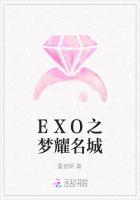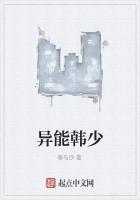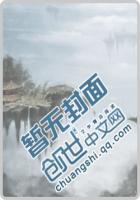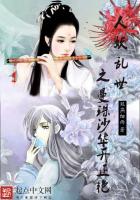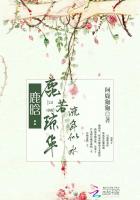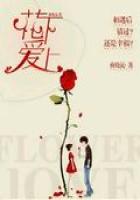Wu worked at the BFAC for eight years until 1964 when the college was dissolved and he was transferred to the Central Academy of Art and Design. Two years later, the Cultural Revolution broke out, throwing China’s art scene into turmoil. “Wu was lucky and escaped being beaten or humiliated by his students” said Jia Fangzhou, an art critic and one of Wu’s closest friends. In those days, high school and college students, naive, opportunistic and indoctrinated by the cult of Mao, were encouraged to denounce their teachers for “bourgeois leanings.” Wu, new to the art and design academy, was overlooked due to his politically “neutral” field of specialism. The dissolution of the BFAC, where he had worked for eight years, scattered students who might otherwise have mobilized against him to the provinces.
But still, like many Chinese intellectuals at the time, he was dispatched to the countryside to do manual labor from 1970 to 1972. At first artists, including Wu, were banned from painting, before later being allowed to paint for one day a week as the political atmosphere relaxed. Due to the lack of an easel, he mounted his sketching board on the handle of a manure cart while making sketches. Others followed suit. This group of artists was jokingly referred to as the “manure-cart school.”
Technique Alone Means Nothing
After Mao’s death ended the Cultural Revolution in 1976, Wu’s pent-up creativity finally found unrestrained expression, with masterpieces coming thick and fast. He now could also openly advocate formal beauty and abstract esthetics.
In 1992, Wu made a big splash in Chinese art circles by publishing an article titled Brush and Ink Techniques – Equal to Zero, criticizing in vitriolic terms the “fad” among traditional-style Chinese painters for exclusivity to the medium of brush and ink technique at the expense of exploring originality. His bold criticism irritated many people engaged in traditional Chinese painting. Some critics said that Wu could not grasp the essence of Chinese ink-andwash. More radical comments even called Wu a traitor to Chinese artistic traditions.
Wu stood firm on his opinions and explained his own esthetic ideas. “What I have been doing is digging up the essential beauty of Chinese painting, something lost on Western audiences due to regimented brush-strokes and coloring, presenting its beauty in a way that everyone can appreciate,” he said.
His painstaking efforts gained acknowledgement from both the market and the artistic world, and made an impact on the way the West viewed Chinese painting. In 1991, he was made an officer of l’Ordre des Arts et des Lettres in France, which began a cavalcade of artistic honors. In 1992, he became the first living Chinese artist to have a solo exhibition at the British Museum. In 2002, he was the first Chinese artist to be awarded the Médaille des Arts et Lettres by the Académie des Beaux-Arts de l’Institut de France, France’s highest artistic honor. In June this year, just prior to his death, Wu’s 1974 oil painting The Yangtze River sold for 57.12 million yuan (US8.4 million) at an auction held by the Hanhai Art Auction Co in Beijing.
But to Wu, fame and wealth also seemed “equal to zero.” “Art is priceless,” he once said, “and sky-high prices have nothing to do with my art.” Wu regularly donated his works to museums in China and abroad. In 1999 and 2009, he donated 50 works to China’s National Art Museum. In 2005 and 2008, he donated a total of 87 works to the Shanghai Art Museum. His alma mater, now the Chinese Academy of Art in Hangzhou, has 72 of Wu’s works in its collections. The Hong Kong Museum of Art also has more than 30. In 2008, he donated 113 works to the Singapore Art Museum.
As valuable as his contribution to modern Chinese art, Wu’s honest perseverance and creativity, even in the face of political oppression, make him an icon to many aspiring Chinese creatives. To Wu, honesty was the most valuable thing of all. As he once said, “Art is all about being true to the world and oneself.”
Augsut 2010
Wu Guanzhong – In His Own Words
Real artists grow up amid hardships and suffering. Society is not supposed to provide for poets and painters. Without experiencing suffering and emotional pain, the artist won’t mature.
The pulse of the art market is not taken accurately. A piece selling for a high price is not necessarily good. The true value of the art is tested by time.
Teachers and parents should help art school applicants understand that the pursuit of art is like taking the road to martyrdom. A person’s future and life are at the mercy of uncertainties. Only those whose passion for painting remains alive, like the grass that survives the assault of boiling water, are qualified for life as an artist.
In China, there are numerous State-sponsored art academies at various levels that provide for painters and art officials. Many of them are nothing but hens that lay no eggs. The bloated Chinese Artists Association [CAA] is actually a Yamen [government office in feudal times] where a bunch of complacent bureaucrats are fooling around.
Many of them simply have nothing to do with the arts. Also, I have witnessed many painters trying their best to cultivate good relations with art officials in order to gain membership of the CAA. Once they’ve had their way, they will exploit to the utmost the aura of CAA membership to ratchet up the price of their paintings.
When I say “brush and ink techniques are equal to zero,” I am referring to the phenomenon that sees many young painters copy old brush and ink techniques and imitate others’ feelings, an act which is bound to be false.
Art grows in the wilderness. Individuality is vital to the artist. He should turn down the offer that he be artificially raised. The artist should let himself be at the mercy of the brutal forces of society and nature.
To inherit the tradition or to rebel against it, which is more important to artistic creation? Obviously, to inherit is not to create. To rebel against it isn’t necessarily creation, either. Yet, to create, one must rebel against tradition. To rebel, in many cases, marks the beginning of creation.
Tradition offers the benefit of enlightenment. However, learning only from tradition is mere imitation.







